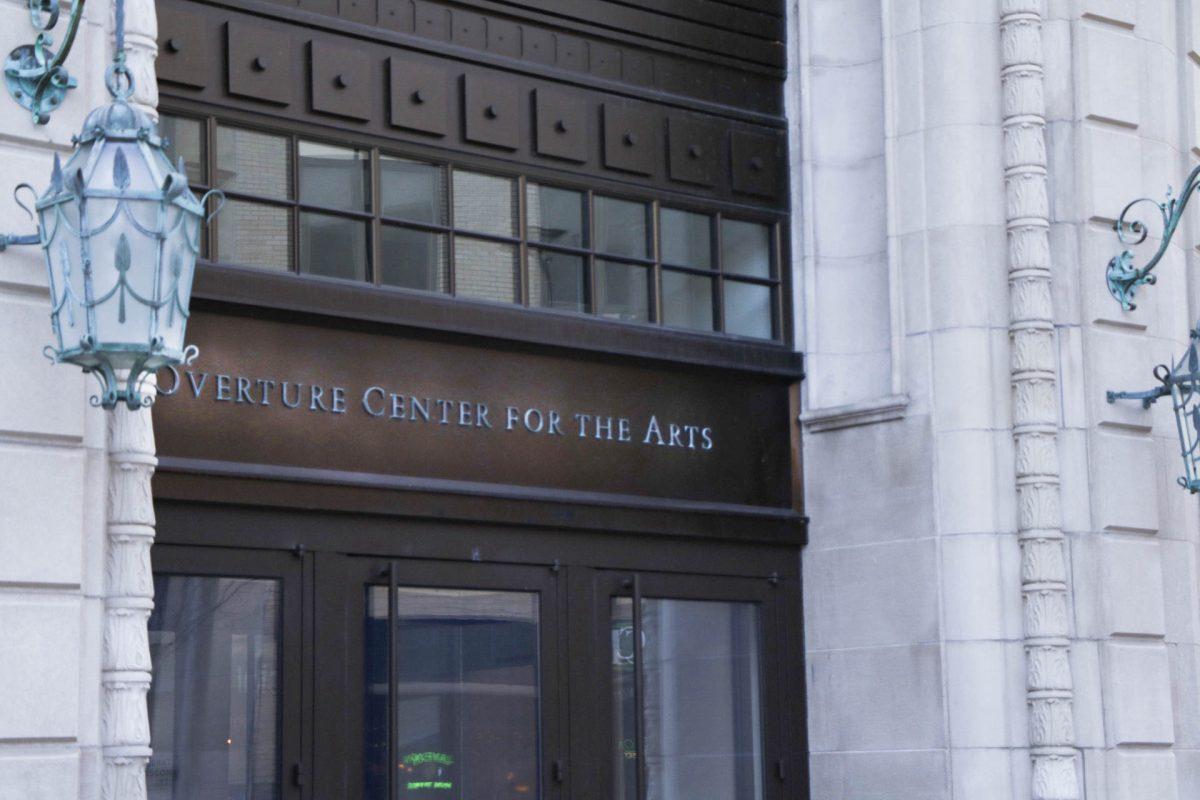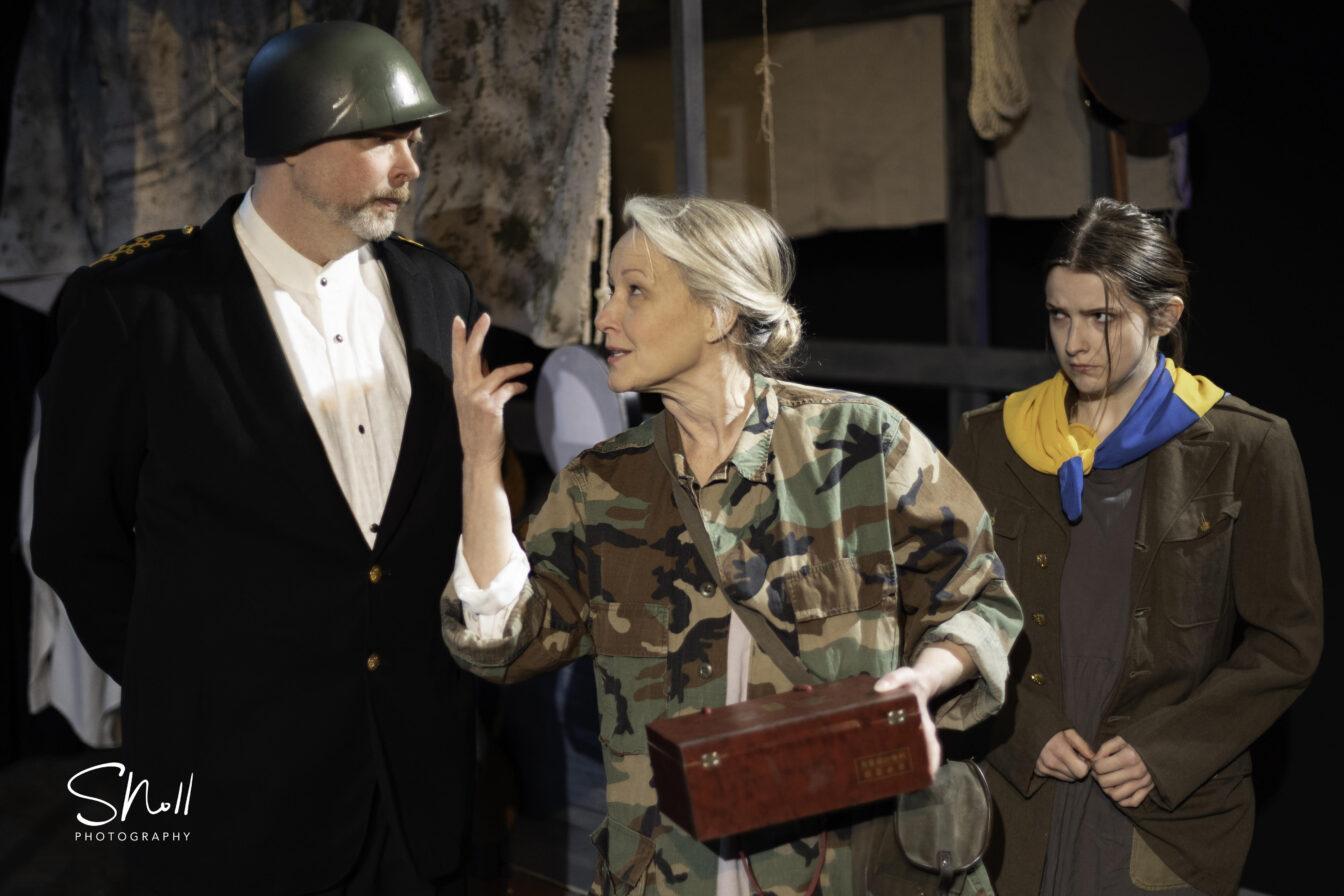The touring Broadway company of the “Miss Saigon” revival came to The Overture Center to perform the controversial musical April 2-7.
The show, set in 1975 Vietnam, tells the “love story” between Kim — a Vietnamese bar girl — and Chris — an American soldier.
First, it’s important to give credit where credit is due. Emily Bautista as Kim was absolutely breathtaking. Performing one of the most difficult scores ever written for a female lead, Bautista’s voice never faltered. Red Concepción (The Engineer) gave an electrifying performance as the conniving hustler who we first meet as the pimp at the “Dreamland” brothel in Saigon.
These two actors, accompanied by the incredibly strong ensemble, were bigger than the spectacular set surrounding them.
Bautista delivered emotional subtleties and intimate moments so that even audience members in the balcony seats experienced the show as if they were in the front row. Performing “The American Dream,” a number that features a kick line, fireworks and a giant dystopian face of Lady Liberty, Concepción was the most engaging part of the elaborate scene.
Haley Heynderickx delivers emotional performance at Rathskeller
But even with powerful performances of a beautiful score by Claude-Michel Schönberg and Alain Boublil, the story is unsettling — and not just because it is a tragedy.
Its use of the Asian women archetype as sex objects saved by heroic white saviors has made “Miss Saigon” has been a controversial topic since its opening in 1989. Its lead character is a Vietnamese sex worker who falls in love with, and dedicates her life to, a white soldier after only 48 hours.
In Madison, the Broadway tour was met with controversy. Local Asian-American activists and scholars planned a panel to contextualize the show, only to be canceled by The Overture Center over question disagreements.
The problem with “Miss Saigon” is not just that Kim is a sex worker, though the use of a fetishized stereotype does not help the script’s case. Eva Noblezada, the original Kim in the Broadway revival production, defended the show as “real,” despite its “demeaning” elements.
What makes the story so difficult to digest is that despite being the main character, Kim’s story is constantly regarded as unimportant. In pivotal moments throughout the show, Kim does not have a voice.
When she engages in sex work for the first time, Chris gets a whole five-minute song called “Why, God, Why” about the pain the situation caused him, the white GI soldier who just paid for sex. We never find out what the experience was like for Kim.
After Chris abandons Kim, the audience has a glimpse into his life in America, where he struggles with post-traumatic stress disorder and marriage problems with his new wife. Yet we never find out what those three years were like for Kim, who gave birth to and raised a child on her own in a war-torn country. We only see her crouched on the ground, looking up at the sky and pining for her white soldier, as she is generally staged throughout this production. We do not know much about Kim, other than that she misses Chris.
The focus on Chris’ pain instead of Kim’s follows the show’s pattern of using an American narrative to tell a Vietnamese story. In discussing the Vietnam War, “Miss Saigon” focuses on American guilt. Ignoring the perspectives of the North and South Vietnamese, the conflict is reduced to whether or not the U.S. should have been involved.
By ignoring the multiple layers of the conflict, “Miss Saigon” minimizes the Vietnamese experience in the Vietnam War as a backdrop for American anguish. The way in which the script emphasizes Chris’ guilt throughout the show in place of Kim’s is just one example of this.
But what “Miss Saigon” claims America is guilty of just demonstrates America’s moral superiority complex. The underlying theme of “Miss Saigon” is that America should have saved Vietnam and did a bad job. This perpetuates the harmful notion that Asian people need to be saved by the West.
“Miss Saigon” does not want the audience to think Chris is a villain, but rather a guy with good intentions who failed to save Kim. It never considers that Kim and the other Asian women in the show had the capacity to save themselves.
I wish I could leave the theatre marveling over Bautista’s vocals. But what will stick with me is the tagline of the show, “The Epic Love Story of Our Time.” The show is about a woman impregnated and abandoned by an American soldier, who ultimately kills herself trying to send her son to America. It is a story about white supremacy and America’s false sense of moral superiority, but not a love story. I don’t believe the producers realize that.
The Overture Center plans to reschedule the Miss Saigon panel to April 24, though it is unclear whether or not the original panelists will agree to attend. For more context, read UW professor Timothy Yu’s essay “What’s Wrong with Miss Saigon?”

















